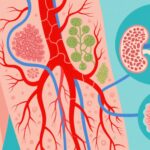Understanding Obesity and Its Health Challenges
Obesity is a complex health condition characterized by excessive body fat accumulation, which increases the risk of numerous chronic diseases including type 2 diabetes, cardiovascular disease, and certain cancers. Managing obesity effectively requires a multifaceted approach that includes lifestyle modification, diet, and sometimes medical intervention.
The Role of Dietary Fiber in Health
Dietary fiber, found predominantly in fruits, vegetables, whole grains, and legumes, is a type of carbohydrate that the body cannot digest. Fiber is classified mainly into two categories: soluble and insoluble. Soluble fiber dissolves in water to form a gel-like substance, which can help lower blood cholesterol and glucose levels. Insoluble fiber adds bulk to stool, aiding in regular bowel movements and preventing constipation.
How High-Fiber Diets Benefit Patients with Obesity
For patients with obesity, increasing fiber intake offers several benefits:
- Weight Management: Fiber-rich foods are generally low in calories but high in volume, which promotes a feeling of fullness and reduces overall calorie intake.
- Improved Metabolic Health: Soluble fiber slows the absorption of sugar, helping to regulate blood glucose and improve insulin sensitivity.
- Cardiovascular Benefits: Fiber can help reduce LDL cholesterol levels, lowering the risk of heart disease.
- Gut Health: Fiber serves as a prebiotic, nourishing beneficial gut bacteria and supporting digestive health.
Fiber Supplements: Complementing the Diet
While obtaining fiber from whole foods is optimal, some patients may find supplements helpful, especially if dietary changes are challenging. Common fiber supplements include psyllium husk, inulin, and methylcellulose. These supplements can help increase daily fiber intake, improve bowel regularity, and support metabolic health.
However, it is important to increase fiber intake gradually and drink plenty of water to minimize gastrointestinal discomfort such as bloating and gas.
Practical Tips for Incorporating More Fiber
- Choose whole fruits instead of juices.
- Include legumes like beans and lentils in meals several times a week.
- Opt for whole-grain bread, pasta, and cereals instead of refined grains.
- Add vegetables to every meal, aiming for a variety of colors and types.
- Consider fiber supplements when dietary intake is insufficient, after consulting with a healthcare provider.
Conclusion
High-fiber diets and supplements play a crucial role in managing obesity and improving overall health outcomes. By promoting satiety, regulating blood sugar, and supporting gut health, fiber contributes significantly to weight management and metabolic improvements. Patients with obesity should be encouraged to gradually increase their fiber intake through a balanced diet rich in whole plant foods and discuss supplement use with their healthcare providers to optimize benefits and minimize side effects.



